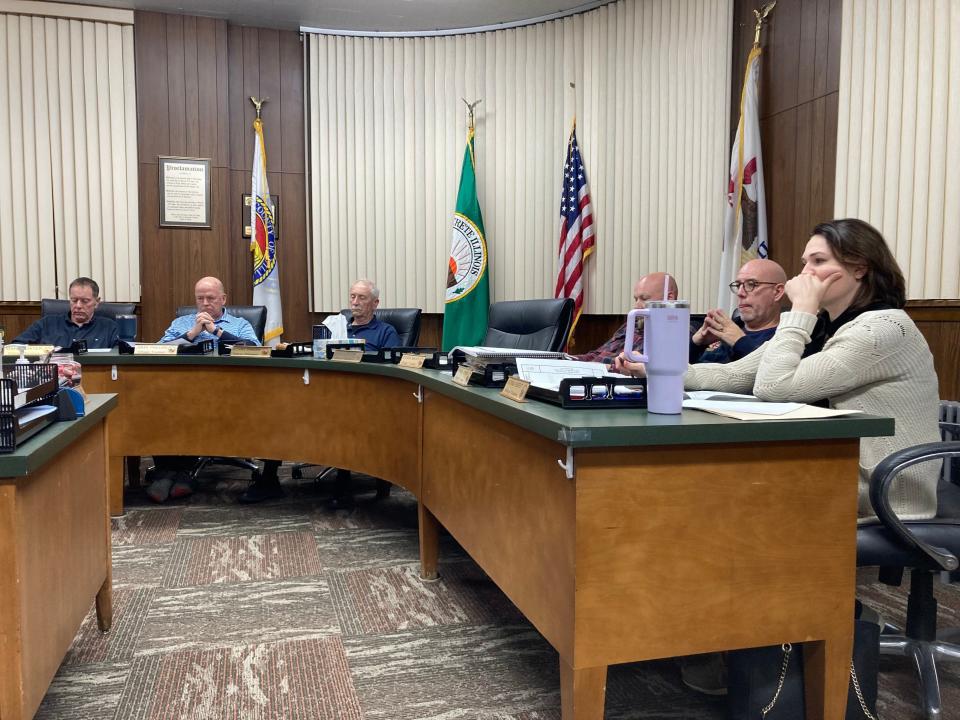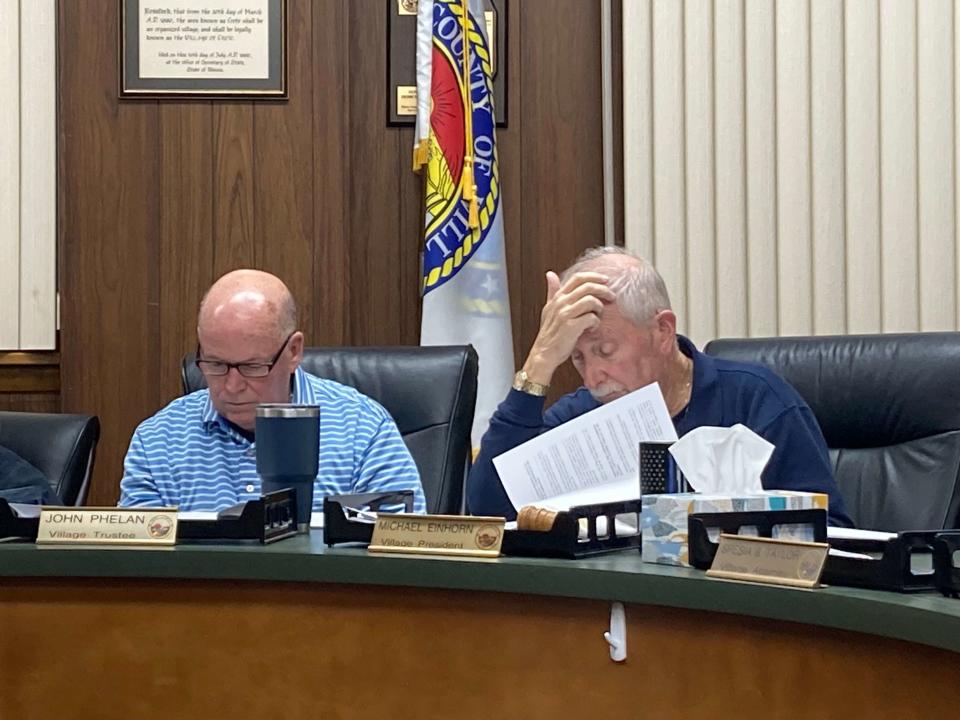Crete trustees discuss allowing golf cart on streets, and granting mayor emergency powers
The Crete Village Board opened up the possibility of golf carts on village streets Monday, discussing a proposed ordinance that discourages their use but makes allowances for those interested.
Under the proposed ordinance, those age 18 and older with a valid driver’s license could operate a golf cart on village roads with a speed limit of 35 mph or lower. Carts would not be allowed on township, county and state roads.
Golf carts also would only be allowed to cross a toll road, interstate highway or controlled access highway where there is a traffic light or two-way stop sign and the speed limit doesn’t exceed 35 mph, under the proposal.
The golf carts would also need safety devices, including brakes, lights and mirrors. The golf carts woudn’t be allowed to tow other vehicles or be driven on golf courses without consent of the golf course, the proposal states.
A permit and $25 fee would be required.
Trustee John Phelan said he talked to officials in surrounding towns to ask how much they charge for a golf cart fee, finding Beecher, Manteno, Monee and New Lenox all charge $25 annually. Peotone charges $30 annually with a $10 discount for residents age 62 and older, he said.
Trustee Stephen Johnson said the fee should be higher, closer to $50. Mayor Michael Einhorn said the surrounding towns have set a precedent with the fee structure, but trustees could always decide to raise the fee if golf carts become popular.
“We may be talking about 10 licenses. We don’t know if we’re talking about 10 or 200,” Einhorn said.
Trustee Steve Bruns suggested changing the working in the penalty section from “shall” to “may” in regards to the minimum $100 fine for violations. Bruns said that would give police discretion.
The golf cart ordinance will be discussed again at the board’s Jan. 22 meeting.
The board also discussed an ordinance to give the mayor “extraordinary power and authority to exercise” during a state of emergency. The proposed ordinance’s list of emergencies includes a riot, natural disaster, epidemic, human-made calamity, outbreak of disease or flood.
Einhorn said the proposed state of emergency ordinance and an ordinance for unscheduled intercity buses and the discharge of passengers should be passed together.
“I think to err on the side of caution, my personal opinion is, we need to adopt them both,” Einhorn said.
Bruns said he opposed the parts of the state of emergency ordinance that states the mayor can close all liquor stores, discontinue the sale of alcohol, stop the selling of gasoline in any container other than a gasoline tank and end the sale of firearms or ammunition.
“People cannot be deprived of life, liberty or property without due process of law. If you tell a bar owner or liquor store, whose primary source of income is the sale of alcohol, that they can no longer sell alcohol because the mayor determined it was an emergency where they can’t, you are depriving that business owner of their property,” Bruns said.
Trustee Mark Wiater said the ordinance is clear any executive order a mayor signs ends with the next board meeting, which means an executive order wouldn’t last longer than 13 days as the board meets every two weeks.
Wiater also pointed to the section of the ordinance that states the mayor can take “all actions reasonably necessary” to act in an emergency.
Einhorn said he would like the ordinance to state the mayor would make best efforts to communicate with trustees, when possible, about his or her plans for executive orders.
The board signaled support for the state of emergency ordinance with the removal of the sections Bruns pointed out, but decided to discuss it again at the next meeting.
In a 6-1 vote, the board approved an ordinance for unscheduled intercity buses and the discharge of passengers. Einhorn said the ordinance is in response to the recent migrant situation, where buses have dropped off migrants in suburban towns.
Einhorn said no buses have dropped off migrants in Crete.
The ordinance states unloading people from an unscheduled intercity bus in inclement weather or severe weather conditions or at varied unscheduled hours without a coordinated plan poses a threat to the health, welfare and safety of passengers.
The ordinance also establishes an application process for bus companies as well as rules and regulations. The rules include limiting the loading and unloading of passengers between 10 a.m. and 4 p.m. Monday through Friday and only in areas designated by the police chief.
Phelan voted against the ordinance after expressing concern the phrase “intercity bus” could affect school field trips or church group trips.

 Yahoo News
Yahoo News 

